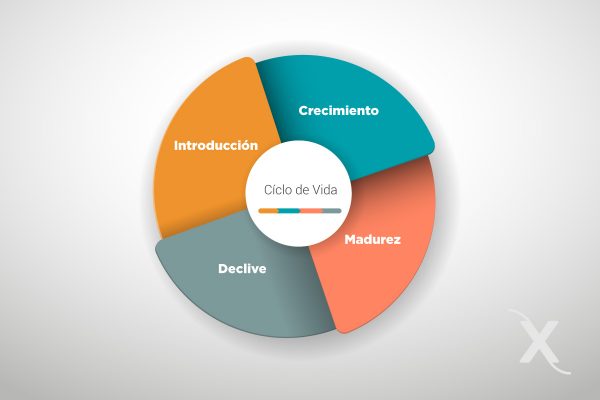
Shield your personal finances
We all have good and bad habits. Although perfection will never be achieved as human beings, if we can seek excellence in our personal financial habits as well as for your business.
Bad habits regarding your diet or exercise have a direct impact on your health over time. It is well said that if you want to have a healthy old age you must take care of your future old man from this moment on.
However, bad habits regarding the handling of your money are noticed almost immediately: you live fortnight after fortnight, you owe money in the bank and you can only give the minimum, you try to stretch every penny to get all the basic needs, you work too much and still say that you can’t afford it.
Did you identify yourself?
It’s a very common problem or complaint but it can be solved with small changes, one at a time and after a few months you can feel your wallet more prosperous.
The first step is to identify the problem, so we talk about the 8 habits that steal your money:
1.- Paying the minimum on credit cards
It is the most common and easiest way to get into debt. By paying the minimum on your credit cards you are only covering the bank’s expenses, and contributing a very small part to the capital you borrowed.
The minimum always looks so easy to cover and also so easy to get into bankruptcy if that’s all you pay.
We recommend that you only cover the minimum in cases of emergency, if something unexpected happens.
It is important that you know the percentage of your minimum payment that goes to principal so that it is easy to calculate the interest that the rest will produce.
If you have been covering only the minimum for months, go to your bank and look for a restructuring of your debt.
2.- Eating out
Eating out is a luxury, even though we know it is rich, easy and comfortable, your wallet suffers.
The most common thing is to find junk food or very fatty food that we do not really know if it was prepared in optimal conditions of food handling and cleanliness.
Although it is possible to find healthy food outside the home, it is usually three times as much as it would cost to prepare for you.
To convince you, we challenge you not to make any changes in your eating habits or places you visit for a week, but save the tickets and do the math.
You will be surprised how much you spent during the week if you ate out once or twice a day.
3.- Invest in your neighbor’s portfolio.
What is good for your neighbor is not good for you.
It is very common that people get carried away by what their friend recommended because that friend is doing great, but there are many factors to consider before investing.
First of all, it is your position in life, that is, if you are single, married, where you live, what is your lifestyle, what do you earn per month, what are your fixed expenses, etc.
With that simple start you are going to get different results from your neighbor or friend because the position or the time and style they live are different.
An example is a single person who earns 20 thousand pesos a month that from fixed expenses only has 8 thousand pesos between rent, food and transportation expenses compared to a married man with a mortgage of almost 10 thousand pesos a month with a small child and earning the same.
Both can save and invest, but both will invest very different amounts in very different portfolios. One can take risks with investments that give more but are still more unstable and the other cannot because his savings capacity is lower and he is looking for something that gives him security.
Get advice from experts.
4.- Do not use the word “NO
This also hits other areas of our lives such as the emotional or the loving, but in terms of our portfolio it is the equivalent of having a hole.
Limits are necessary everywhere and in the economy the only thing that produces that you do not know how to say is that you never have the opportunity to save and even battles to cover the basic monthly expenses.
5.- Finance yourself with the effort
The pawn may have an interest rate of up to 200%.
One piece of advice we give you is not to invest in the business without first having a business, by this we mean that first you should start working and getting clients, to generate money you don’t need money.
You have skills, intelligence and contacts that for sure can be your first customers, today starting a business is easier in the digital because the initial investment can be zero.
6.- Do not prevent
Anything can happen.
Of course, we are not with a negative thought, on the contrary, we believe that everything will always be resolved in our favor, but the phrase “everything can happen” is still true.
Believing that you will never get sick, that you will never get out of the blue and not foreseeing can cost you all the savings you had at that moment.
Insurance is really an investment so you don’t embezzle when you need medical attention, repair your home or fix your car because of a crash.
7.- Make shopping your therapy
Be a conscious consumer.
It is possible to save on every expense if you know where and how much to buy. Using shopping as therapy to feel better will lead to bankruptcy.
There are many other activities that you can use as therapy to stop spending your money impulsively.
8.- Complain about not having money
Although it’s not something we can scientifically prove, gratitude makes you happier, gives you more peace, and also fills your wallet.
Complaining only puts you in a negative and sad state where it is harder to be productive and connect with other people.
In conclusion:
To be a successful entrepreneur you need to master your personal finances. Have you heard of people who have won the lottery and within a few years become poor again? This is due to a lack of knowledge about money management.
START NOW!
-Identify what area you are failing in and improve by creating goals in your personal finances as well as in your business.
-Start one at a time and work your way up to make it easier for you to see the results over time.







Leave a Reply